A Glimpse into the Life of a Volunteer Firefighter
Experience the adrenaline-filled, action-packed day of a volunteer firefighter as they combat a fierce house fire, highlighting the challenges and rewards.
Experience the adrenaline-filled, action-packed day of a volunteer firefighter as they combat a fierce house fire, highlighting the challenges and rewards.
It’s definitely a new world with a global pandemic. First off a huge salute to the first responders, healthcare workers, doctors, nurses, and other folks that keep things moving: delivery, grocery, utility, etc.
Like all first responders we have been charged with performing our duties in the midst of this pandemic. To help others we need to be safe ourselves. Over the past month or so I’m sure there has been a scramble for updating or writing policies and procedures on how to respond, a reminder of hazmat decontamination practices and a scramble to simply attain appropriate Personal Protective Equipment (PPE).
Coming from a rural volunteer fire department here is what we have done in terms of policy.
This is a bit abbreviated and we also included a Call Response Log. Both can be viewed here. Also, feel free to use these or any portion of them for your department.
Here are just a few of my favorite illustrations that I’ve come across online. Stop, and thank these essential personnel when you have the chance. A simple “thank you, we appreciate you” will do over social media too.

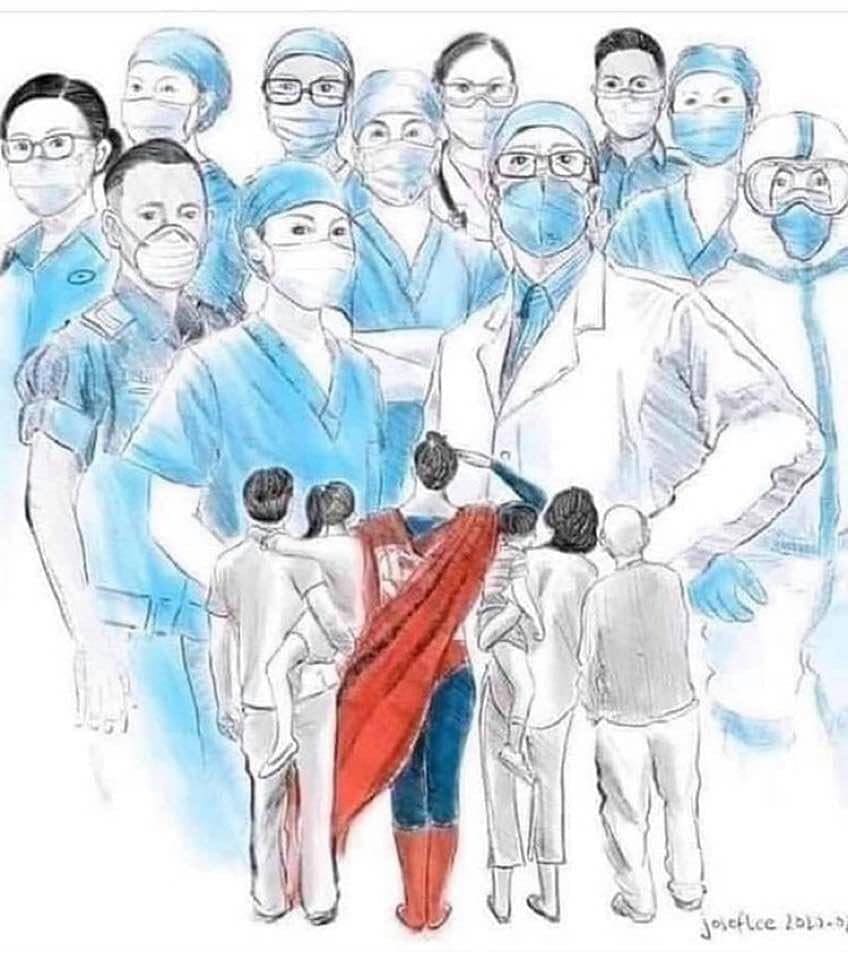
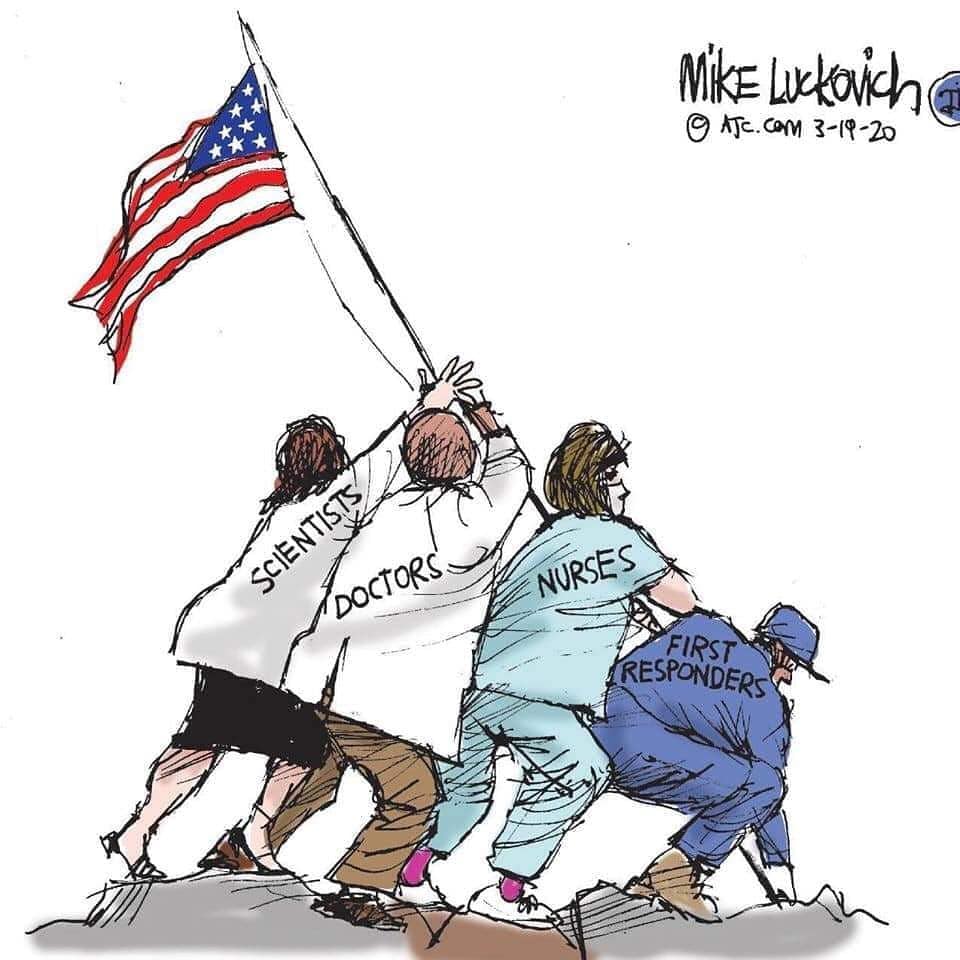
Been thinking about this lately and looking at videos to best describe why we do it.
Seems like a lot of stuff has recently sparked in me and rather than put these all as separate items I thought I’d give you some sort of blog combo pack!
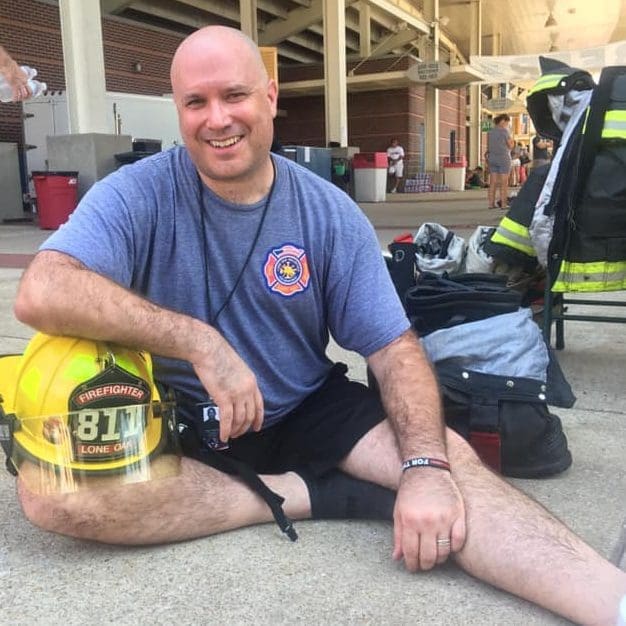
Post-Chattanooga 9/11 Stair Climb
Thinking about this question brings some deep, as well as some not-so-deep thought. Quickly it was initially to be part of the community where I am not from and don’t initially fit in due to my yankee accent. Also due to several wildland fires in the area and just newly built a house out in the woods, I wanted to be able to protect my house and family. But the more I got into it, the more I wanted to learn. It fulfilled a “professional” need of being valued that my day job didn’t meet. It also was serving a higher purpose with my marketing skills and expertise – one that has been a weight on me for years. Something good instead of pushing products that really didn’t help people in a meaningful way. I was helping people. Directly by responding to emergency calls, and indirectly by helping my fire department and influencing others. Not a lot of change happens in the fire service and coming in with a marketing perspective offers something new. Not that many are willing to even talk about this “soft” side of the fire service, but I see the benefit and so does my department.
The fire service is in bad shape. Declining members (both career and volunteer) and declining funding. I also believe it’s a lack of understanding and value. People have an emergency and they dial 911 and we show up. But what if those response times continue to slip? What if nobody came? It seems like that’s where we’re headed as a society anyway… everyone for themselves. Look at politics and corporate ladders. Where has the “we” and “us” gone? Where is a community that truly looks after and cares about each other? There may be some pockets of that here in the US, but for the most part I see that gone.
I guess I take that on myself. To improve my department, to show the value to my community and to pull us together and prove that it can be done. To be an example to other departments and communities. And then perhaps, work with other departments and communities as a day job. Though frustrating at times being part of a small, rural department, I also see it as a way out of my day job. An advancement to do something different that has tangible, real life-changing results with what matters most – people.
Personally, I also wanted to see if I could do it. Physically and mentally. To learn something new. I have been so bored with my day job and not seeing much future in it or seeing a higher purpose in it. To push myself physically to see if I could keep up with the kids in their 20’s. To lead them and to offer a positive example. To give my department members with a positive role model and to lead them. And to be honest, it also helps me burn off aggression and
anger due to the issue with my precious children. I’m not involved in their daily lives and rarely even hear from or talk with them mainly due to their “mothers” bitter and vengeful influence and the courts not really caring about anything but money. I have been able to punch holes in boats with an axe, rip down ceilings during overhaul, save precious memories, extinguishing fires and raking fire breaks. I get dirty, sweaty and can use brute force. This helps me control my anger. It is getting better with time, but I still have my moments, and this gives me a good outlet.
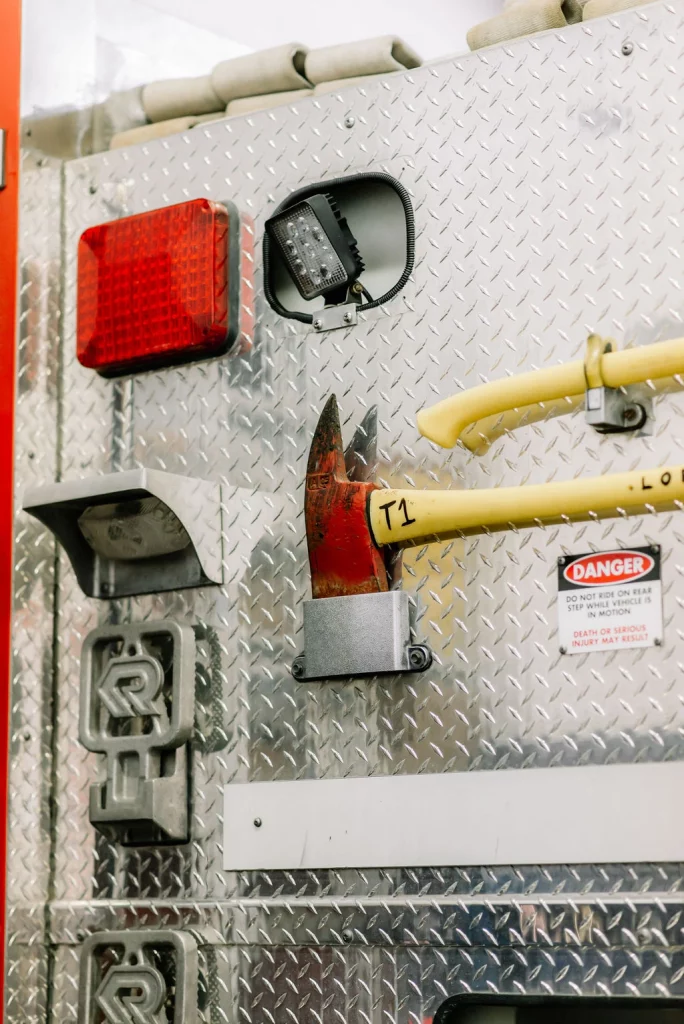
I know I keep most of this in my head and to myself, and it takes a lot to pull it out of me (kicking and screaming sometimes due to my stubbornness). I stay pretty reserved with my personal life as I have been hurt by so many people in the past my trust is limited. Maybe fire service is a way for me to trust again. It’s needed on emergency scenes and with who I’m there with. Didn’t think of that before but it makes sense.
It also brings an aspect of respect and honor. I feel proud to be a firefighter. It’s an important job and the fact that I’m a volunteer makes it extra special. Not because of what others think, but to me and my own pride and sense of self-worth. When I have my turnout gear on, I feel invincible. I feel strong and know the adrenaline is coursing through my veins. It’s a high.
The fire service can be changed, and I can help be part of that change. It’s for the good of all of us, and it’s good for me.
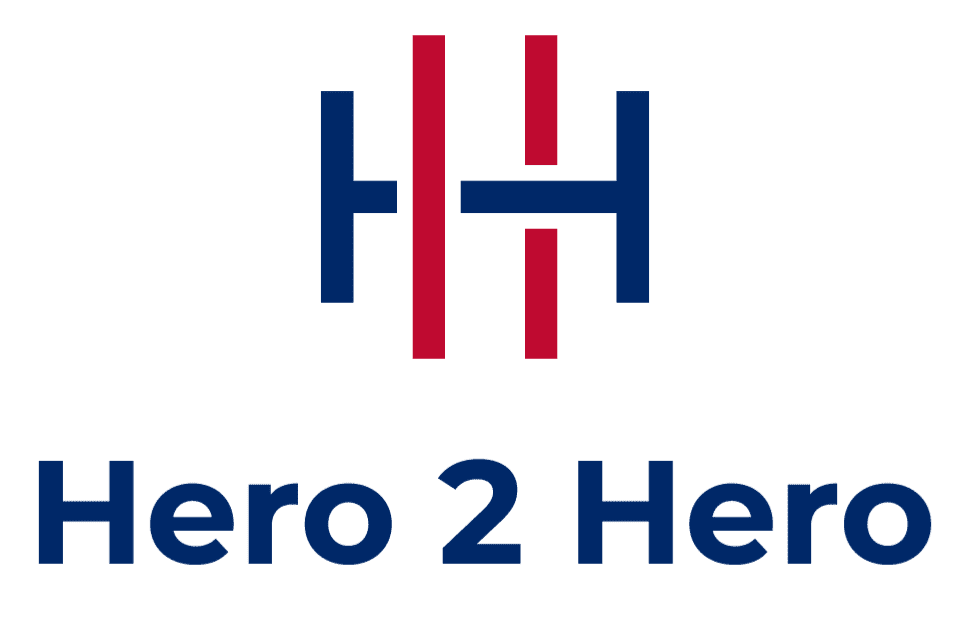
A friend of mine, Leslie Yancy, has developed a sheet to help understand stress with tips on how to best manage it – something all first responders should know and learn. She does some amazing work and give programs to first responders and medical staff on healing from trauma or ptsd. Learn more about Hero 2 Hero and check out her stress handout here.
Recently and at the conclusion of Fire Prevention Week, my department, the Lone Oak Volunteer Fire Department, held an open house to the community. We had breakfast and lunch, educational programs and hands-on demonstrations for everyone. And the best thing? All the supplies and food were donated to us from local companies. Everyone had a great time. As a marketing tool itself – the open house– we gained valuable visibility within the community and our mutual aid partners. In addition we had a local videographer film and edit down the entire event which provides us yet another marketing tool in our overall program. Take a look and tell me this doesn’t make you feel good about community and the great work we’re doing.
Something that is to help clarify the marketing and power of it within a fire or emergency service organization.
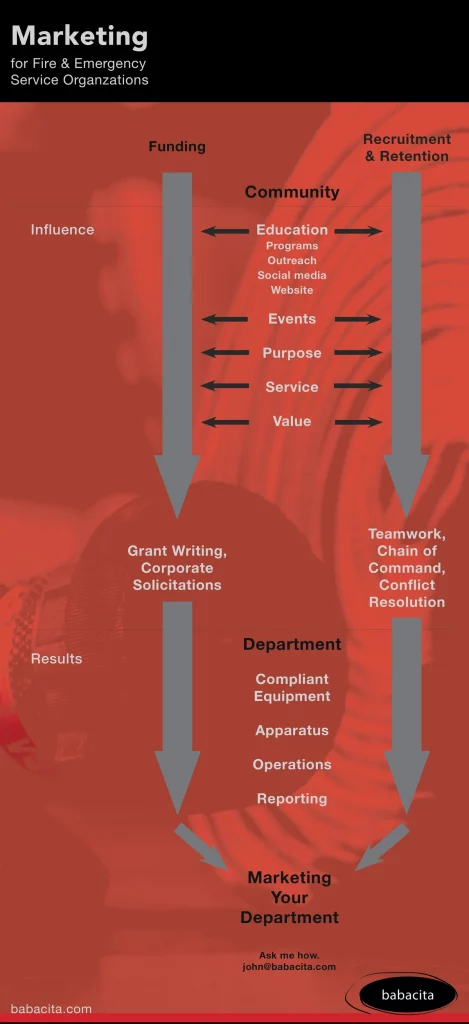
Last week as I walk through the Firehouse Expo in Nashville some things kept coming into my mind. All these people attending to learn and all of these vendors supporting the fire service industry is truly amazing to see.
This was also a couple days before my fire department was having its first big open house for the community. We had an incredible amount of support from our area businesses… donating financially for picnic supplies and through other items such as coffee, doughnuts, hot dogs, etc. That blew me away and there are people that care.
Knowing over 70% of all fire departments in the US are volunteer organizations it’s great to see this support. There are many challenges though. Declining members (and member support/dedication), limited funding (need for fundraising) and lack of community support are just a few but they’re at the top of my list. But these aren’t simple things. Without dedicated members, without funding… terrible responses. Without community support how can a department grow?
We need to demonstrate the value we provide. A day in the life of a volunteer firefighter in a rural department and all the services and value we bring to a community. To really get them to understand what we do.
And I’m sure I forgot a few things.
The people attending, teaching and exhibiting at Firehouse Expo and the dedication from a handful of my department members truly show what it is to be part of the fire service. But how can we gain new, quality members and address these big challenges?
Aside from continuing to push the value to the community, I’m not sure how else to get across this message. Continuing to push will directly impact membership and local support (financial and other). But it’s exhausting. I’m exhausted. But you know something… I will take a day or two to recover and then start again. The fire service is THAT important for me, and to those dedicated like me, to ever stop pushing. Through all the bullshit and struggles it boils down to helping people and providing a service. Not because we’re paid or want acknowledgement but because it matters to us personally and it’s the right thing to do. It’s who we are. And I tell you… if you’re not here for the right reasons you will not last.
We need to communicate our hearts and passions rather than “we need more members, more funding and more support.” Why are we here? Why are YOU here? I am here because I care. I want to be an integral part of my community. I want to help protect it and keep everyone safe. I want to keep our forests intact and thriving. I want to help people learn how to protect their homes and property. That is why I do it. That is why I will continue to read and learn, attend conferences and seminars, and to help my department be the best it can possibly be. To lead the way and be an example to other volunteer departments. It can be done but not overnight. It’s a long-term process with every step being methodical and sustainable for the future. It’s not easy but it’s worth it.
Communicating our hearts and passions will impact memberships and set an example of leadership to others. In the meantime, do the best you can with what you have. Nobody can fault you for that. You are the true heroes of the fire service. You know who you are. Thank you for all you do and what you are.

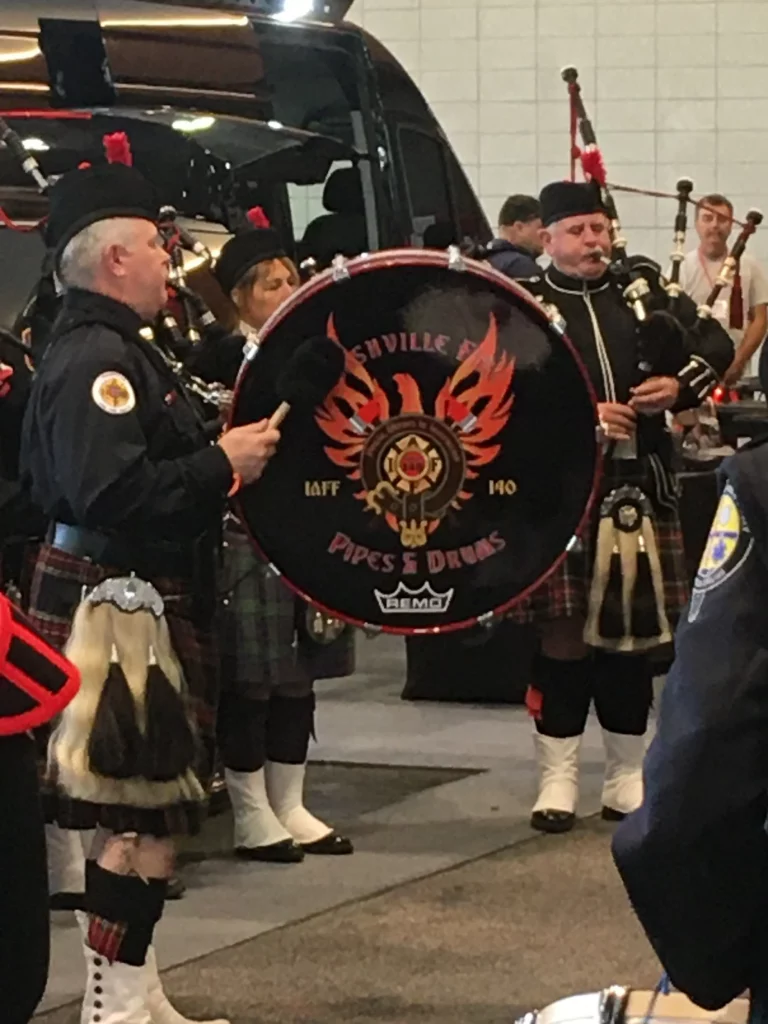
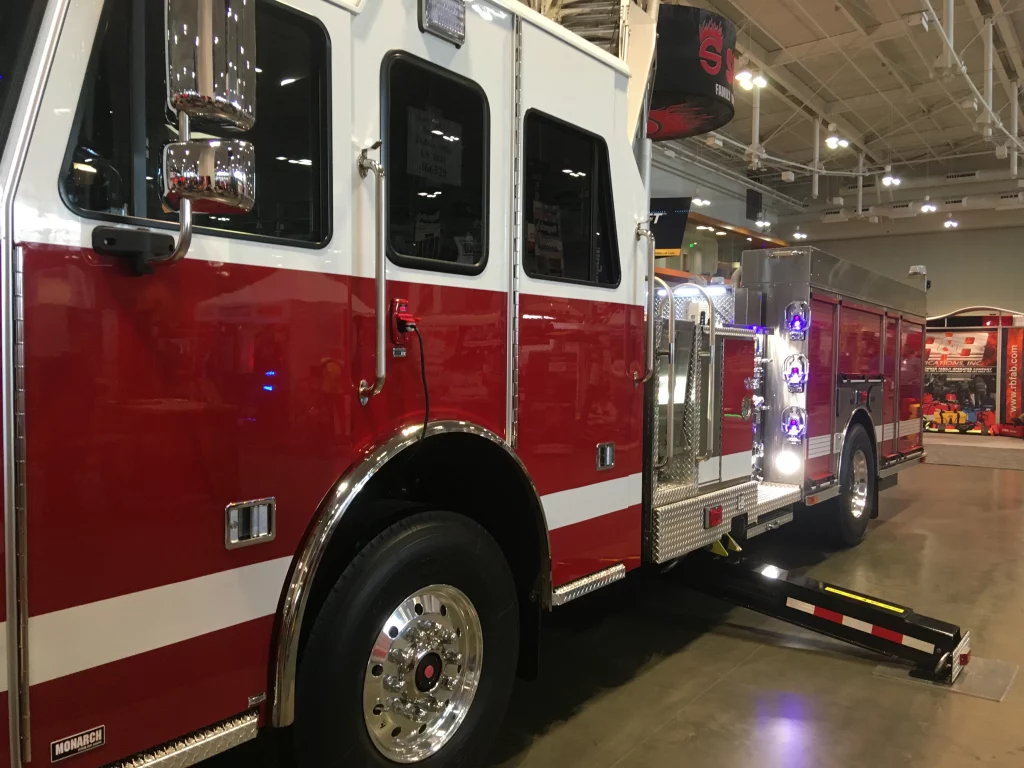
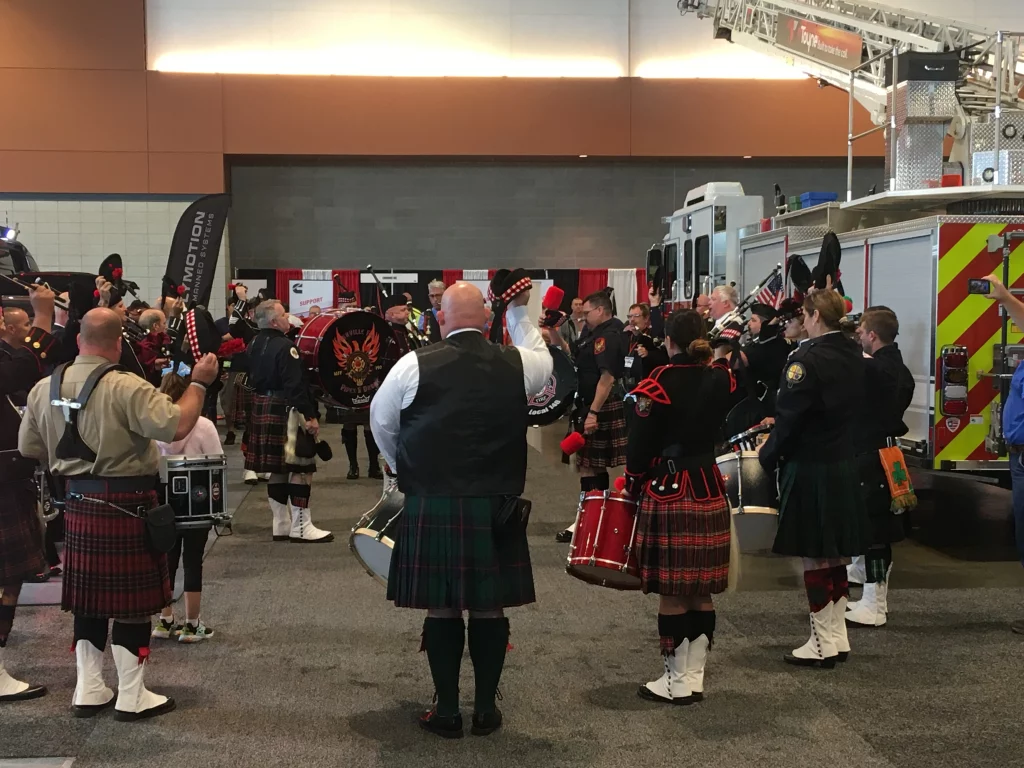
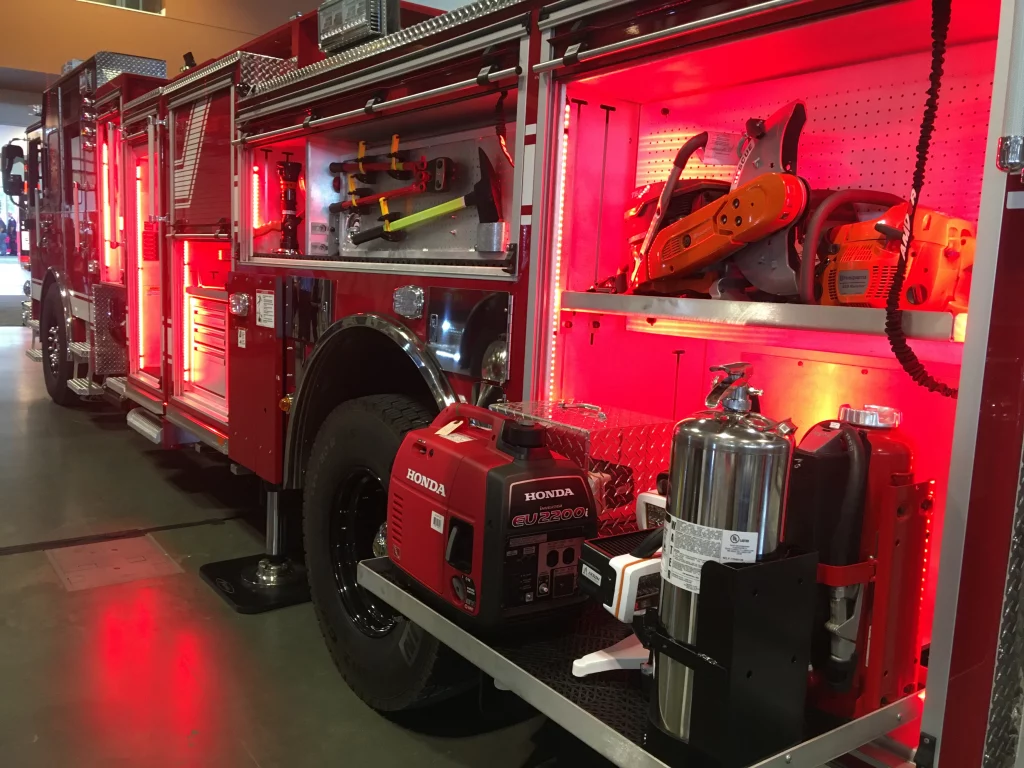
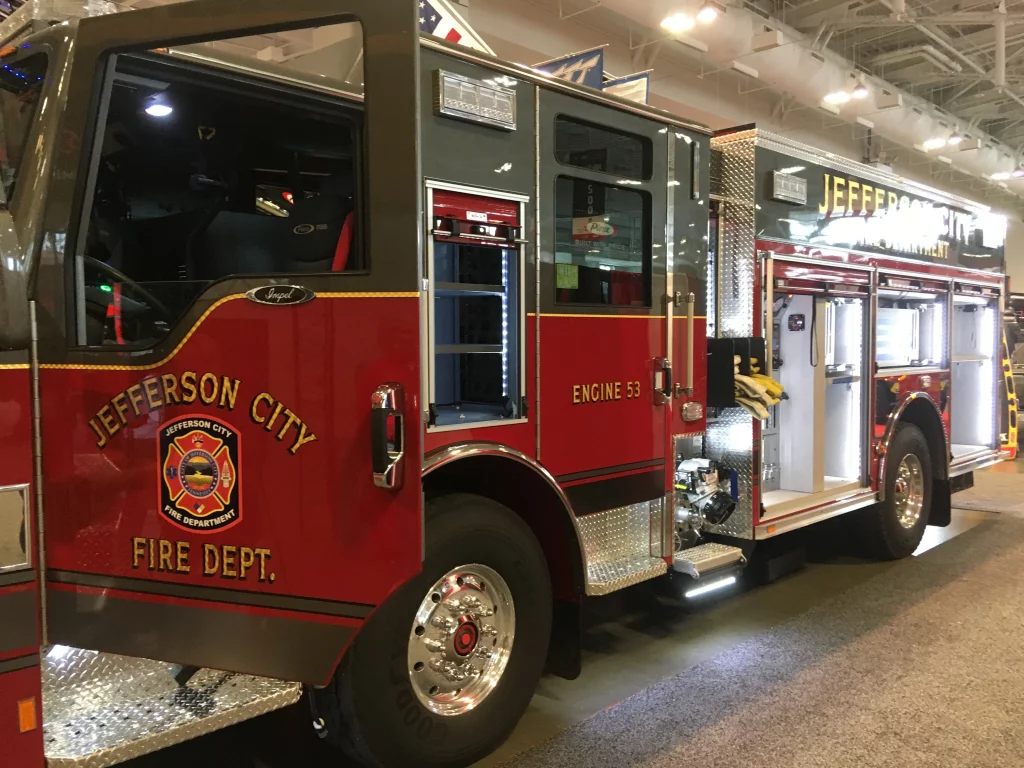
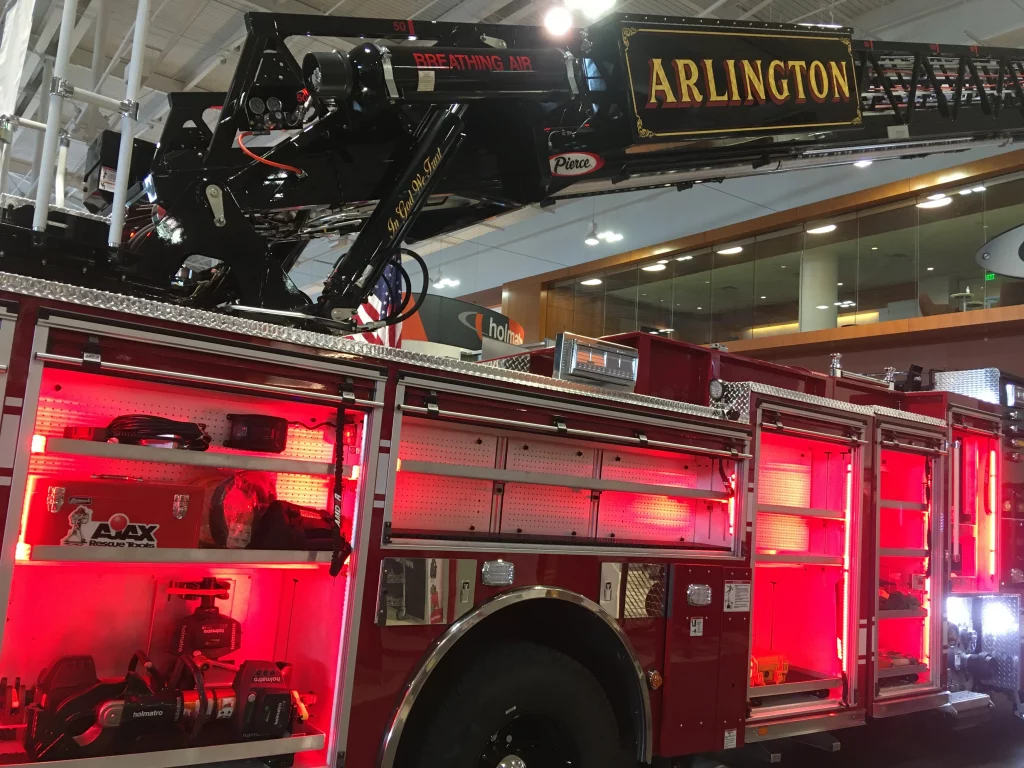


Now before you think marketing is a term for businesses and that it’s expensive hear me out and hang with me.
Marketing is an overarching method to communicate a message to a defined audience to elicit a specific action or feeling. Now in English… Who are you? Who are you talking to? What message do you want to get across? What do you want them to do? How are you delivering it?
For example:
Fire Department X provides exceptional fire and emergency medical response services to the community of XX.
The XX community members.
To go a step further… they are made up of approximately 50% retirees, 30% young families of which 40% work in agriculture. The community is also experiencing new construction growth.
NOTE: The more information you know about who you’re talking to (your audience), the more effective things will be.
That Fire Department X is in need of new members to serve the growing needs of the community.
Visit our new member information page on the website (www.xxxxxx.org) or stop by one of our weekly training sessions held Tuesday nights at 6:30-9:30pm to learn more about how your talents can help your community.
Through our website, Facebook page, posted flyers and member word-of-mouth.
Note: Think of who you are talking to (your audience) and make sure how you are delivering the message are the right way to send information. For example, if a large population visits a popular breakfast place, maybe communicate it there or help serve coffee and deliver the message. If your audience isn’t computer or technology savvy don’t spend the energy in posting on Facebook.
Definitely some things to think about.
At the recent Tennessee Fire Chiefs Association and Southeastern Association of Fire Chiefs Joint Leadership conference I also experienced the Ringing of the Bell Ceremony for the first time. This is a proud tradition that has been done for over 200 years at a firefighter’s memorial service.
Usually a firefighter bell ceremony is done after the Fireman’s Prayer. The ringing of the bell is the final event of a ceremony that announces a brother or sister has come home for the final time. After each set of ringing the bell 3 times, the fingers of a gloved hand gently grab the bell to silence it before sounding the next ring of 3. As the final toll of the 3rd pull, the bell is left alone to ring out. The bell ringing recalls a time when the fire bell rang to call firefighters to an alarm and then, again, to signal that the alarm had ended.
This was done for the fallen firefighters in 2018 of the Southeastern region.
The men and women of today’s fire service are confronted with a more dangerous work environment than ever before. We are forced to continually change our strategies and tactics to accomplish our tasks.
Our methods may change, but our goals remain the same as they were in the past, to save lives and to protect property, sometimes at a terrible cost. This is what we do, this is our chosen profession, this is the tradition of the firefighter.
The whole fire service of today is ever changing, but is steeped in traditions 200 years old. One such tradition is the sounding of a bell.
In the past, as firefighters began their tour of duty, it was the bell that signaled the beginning of that day’s fire chief’s shift. Throughout the day and night, each alarm was sounded by a bell, which summoned these brave souls to fight fires and to place their lives in jeopardy for the good of their fellow citizen. And when the fire was out and the alarm had come to an end, it was the bell that signaled to all the completion of that call. When a firefighter had died in the line of duty, paying the supreme sacrifice, it was the mournful toll of the bell that solemnly announced a comrades passing.
We utilize these traditions as symbols, which reflect honor and respect on those who have given so much and who have served so well. To symbolize the devotion that these brave souls had for their duty, a special signal of three rings, three times each, represents the end of our comrades’ duties and that they will be returning to quarters. And so, to those who have selflessly given their lives for the good of their fellow man, their tasks completed, their duties well done, to our comrades, their last alarm, they are going home.
Rest in peace and thank you for your service, brothers and sisters.
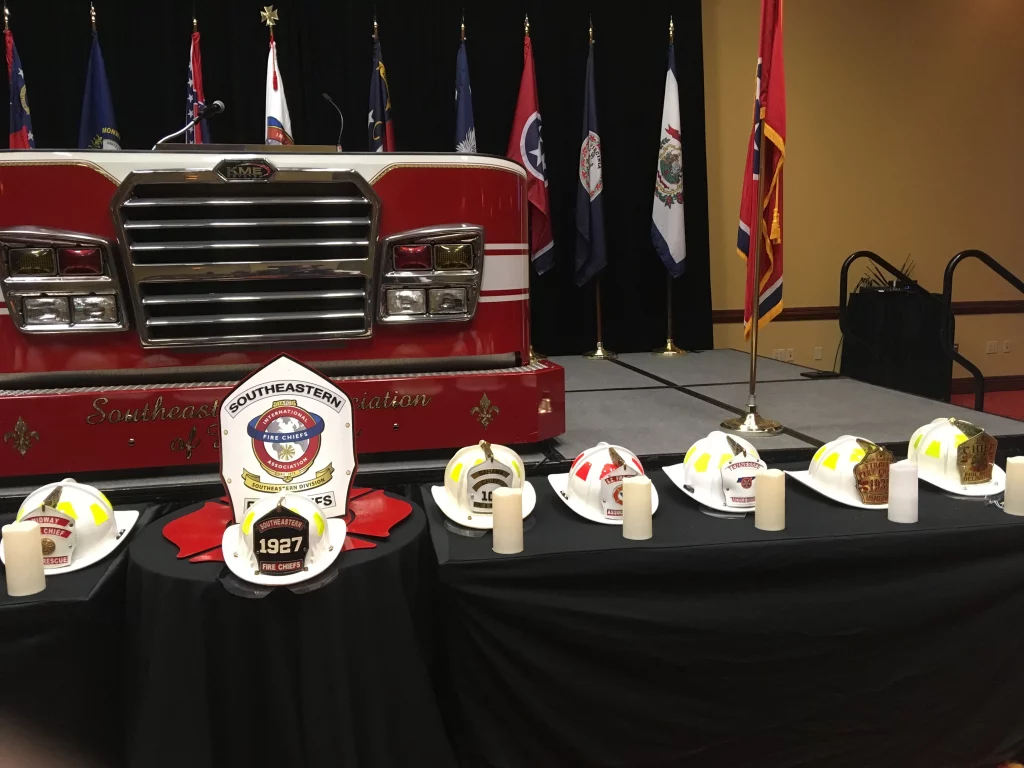
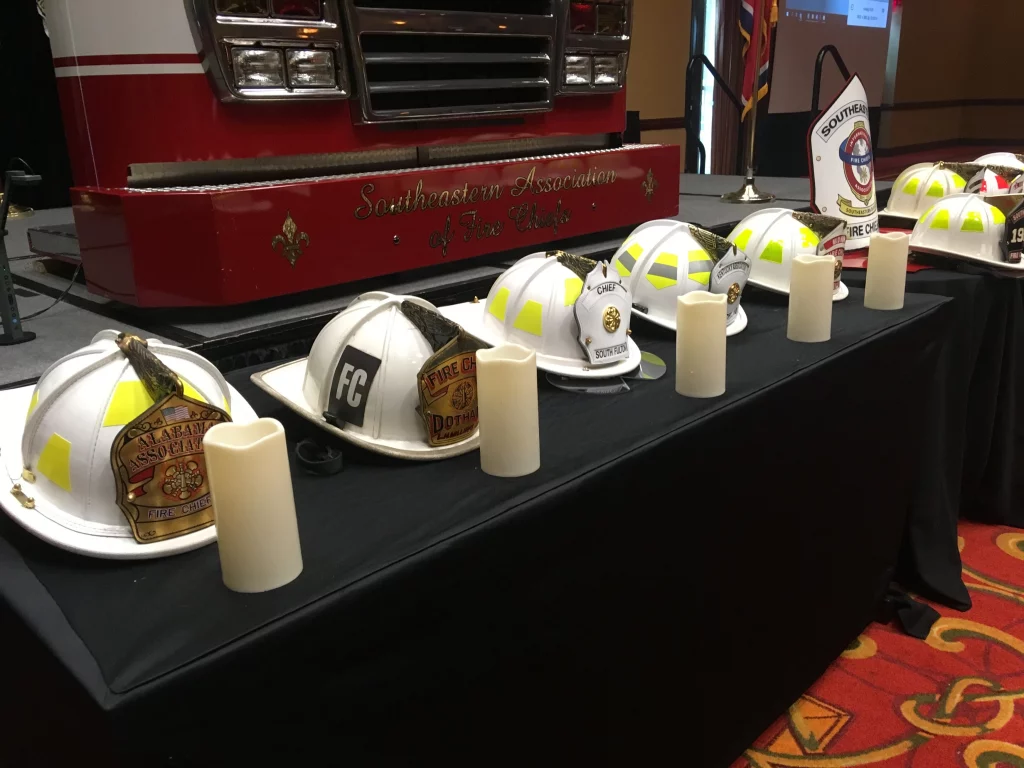
These thoughts keep coming to me as I recently wrote this on our department training room whiteboard. Along with “Listen, learn, teach, train.” These core elements fused with teamwork within the structure of the incident command system make for a successful fire hall.
On a recent call I failed (forgot) to turn command so one of our pump operators and it caused some confusion on scene. No harm was done and the brush/trash fire was extinguished. But still… it could’ve run a little more smoothly had I turned over command when the trucks arrived. This mistake was a good place to make it but it has still bothered me for days and I take it as a moment of learning. It won’t happen again.
Another aspect is attitude and what wolf are you feeding?

Inside of me there are two wolves. One is mean and evil and the other is good and they fight each other all the time. When asked which one wins I answer, the one I feed the most.
—Sitting Bull
Having a positive attitude can do wonders for a fire hall but it can also cause chaos and turmoil from with that may also spill “out of the house.”
Are you listening to your officers and to those who are more experienced?
Are you continuously learning through reading, attending conferences and online tools? What about other departments or your law enforcement or ems partners?
Are you sharing your knowledge and teaching those new to the fire service or the department? Every scene and training session is an opportunity to teach so take advantage of it.
Train. Train as your life depends on it. Your life does. And those lives around you. Train always. Physically, mentally, emotionally and spiritually. Always.
So… what are you doing to make your department better?
Be safe.